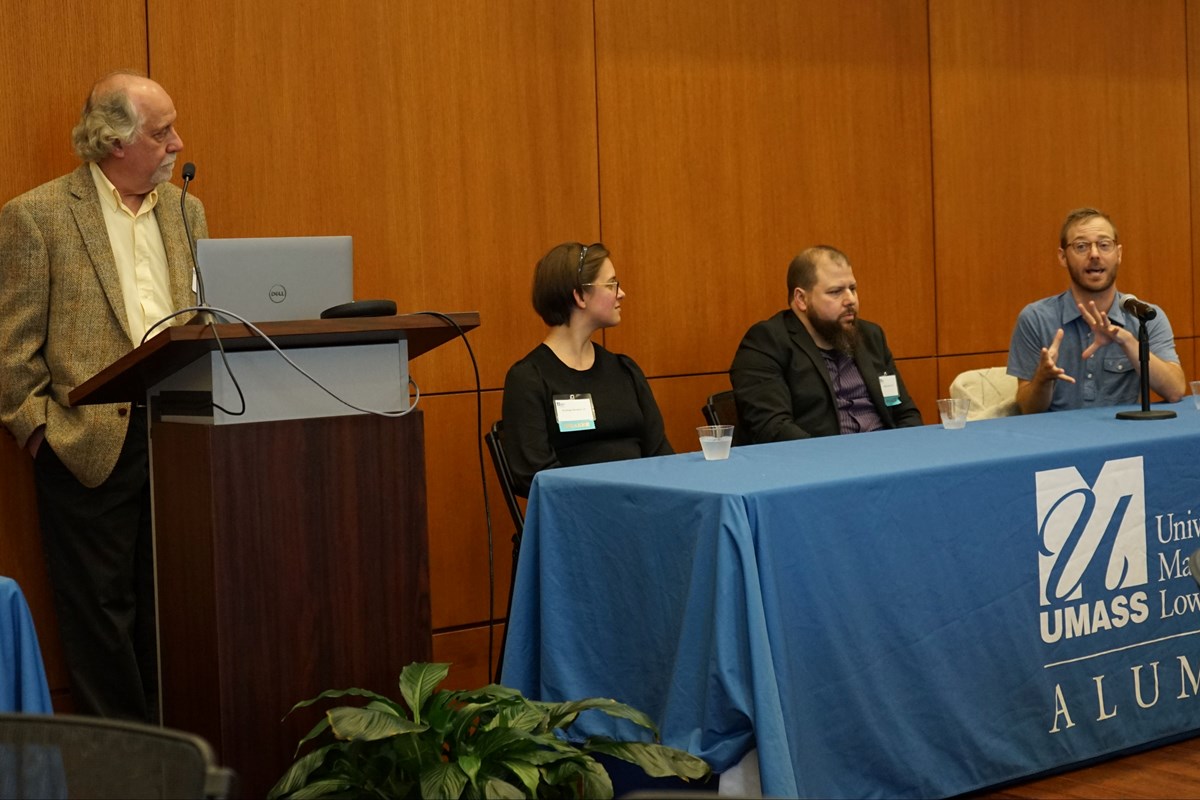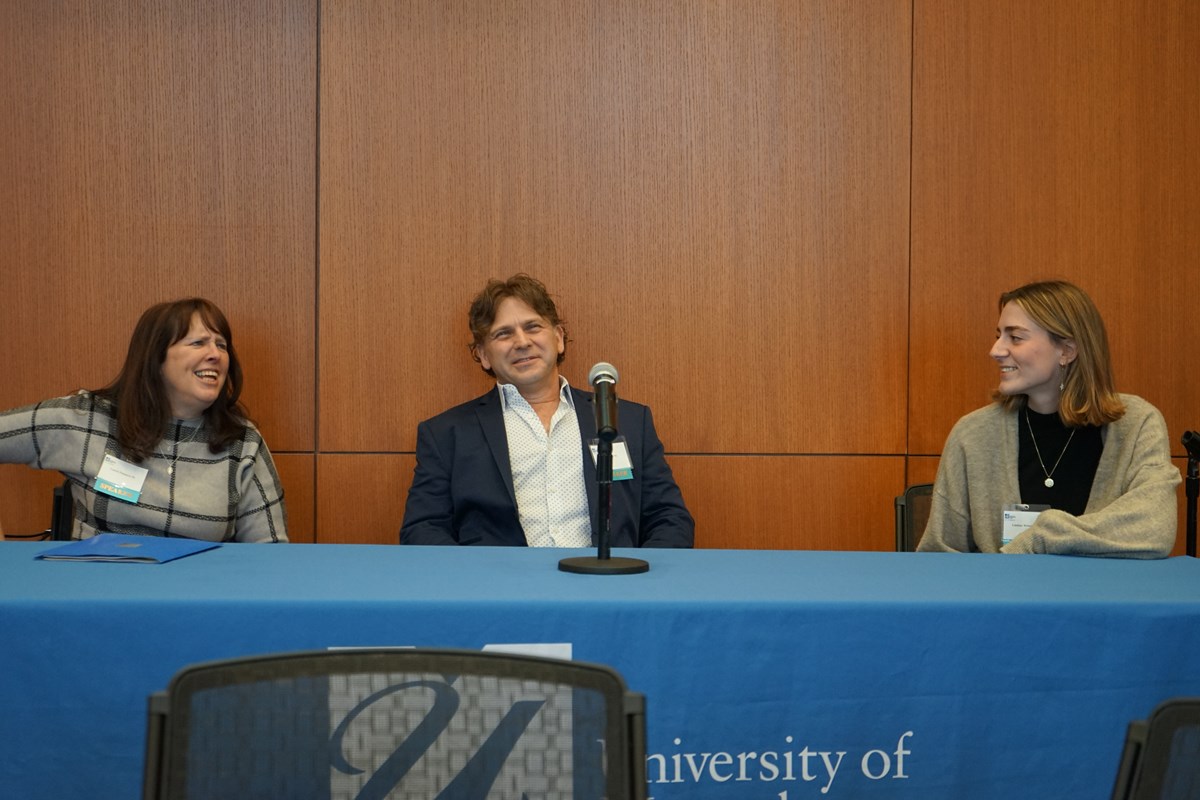Program’s 40th Anniversary Brings Accomplished Grads Back to Campus
 Image by Marlon Pitter
Image by Marlon Pitter
11/06/2023
By Marlon Pitter
Mike Testa ’04, ’09, ’21 was on a duck boat during the Boston Bruins’ Stanley Cup championship parade in June 2011 when a UMass Lowell professor reached out to him about a teaching opportunity that had opened at UML.
Working as a chief audio mixer and broadcast engineer for New England Sports Network (NESN), Testa had helped to produce Bruins and Red Sox broadcasts for the TV station since 2004.
“It was a complete career shift from broadcasting and audio (to education),” he said.
Testa pondered the opportunity briefly, and his decision was made before the parade ended.
“I got off the duck boat, I went to my boss, and I was like, ‘I’m putting in my two weeks,’” he said.
Testa taught sound recording technology and digital media classes at UML from 2011 to 2015. It was a return to the program at which he earned his bachelor’s and master’s degrees in sound recording technology.
Testa earned his Doctor of Education degree at UML in 2021 and is now an associate professor at Salem State University, serving as the coordinator of the Music Technology Program there.
Testa and fellow graduates of UML’s Sound Recording Technology program shared their career experiences, ranging from audio engineering to music copyright law, with students, faculty and other alumni during a recent panel discussion at Coburn Hall.
 Image by Marlon Pitter
Image by Marlon Pitter
Scott Pizzo ’91, Laurie Flannery ’91, Justin Matley ’04, Kayleigh Ristuben ’15 and Lindsay Roberts ’21 joined Testa on the panel. Professor Emeritus William Moylan, who founded the SRT program in 1983, moderated the conversation as part of the program’s 40th anniversary celebration. The program, one of the few of its kind in the country, counts numerous Grammy and Emmy award winners among its tight network of alumni.
Flannery said she had “fallen in love with (mastering)” early in her career as a mastering engineer at Northeastern Digital, a recording company in Southborough, Massachusetts. Now working for Audio Journal, a nonprofit radio station specializing in broadcasts for blind people, Flannery said the SRT program was instrumental in preparing her for a career spanning more than three decades.
“One thing that SRT teaches you is to be nimble,” she said. “Because of that and the overall education in classes like Critical Listening, it sets you up with a very wide tool set so you can really dive into a lot of different areas.”
Ristuben said the SRT program teaches students to work hard and not be afraid of climbing the ranks in an organization.
After rising to the role of executive producer at Soundtrack Boston, an audio post-production company, and senior business affairs manager at MullenLowe U.S., an advertising and marketing communications agency, Ristuben is undergoing another career shift: She’s currently enrolled at the Fordham University School of Law and plans to work in music copyright law after graduating.
Testa told students to not be afraid of making changes in their careers when necessary.
“Something happens, whether you become aware of it or not, where you just gotta make the jump,” he said. “It’s scary as hell, but you just gotta do it.”
